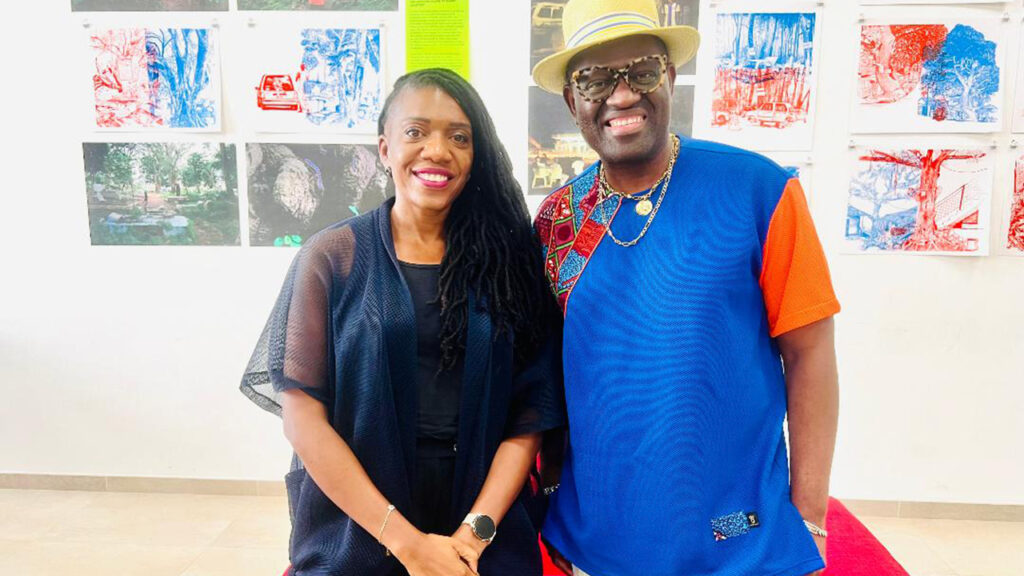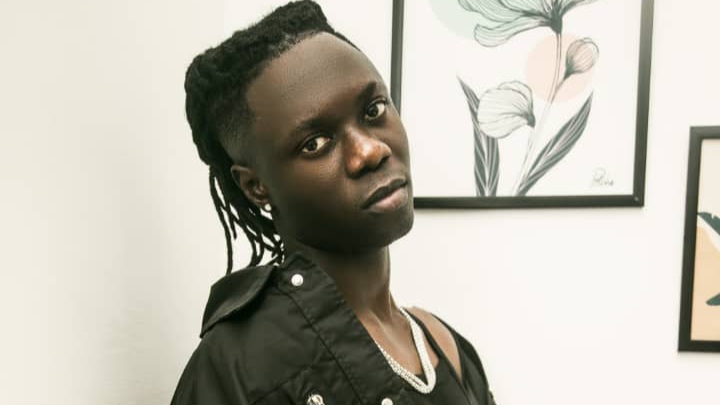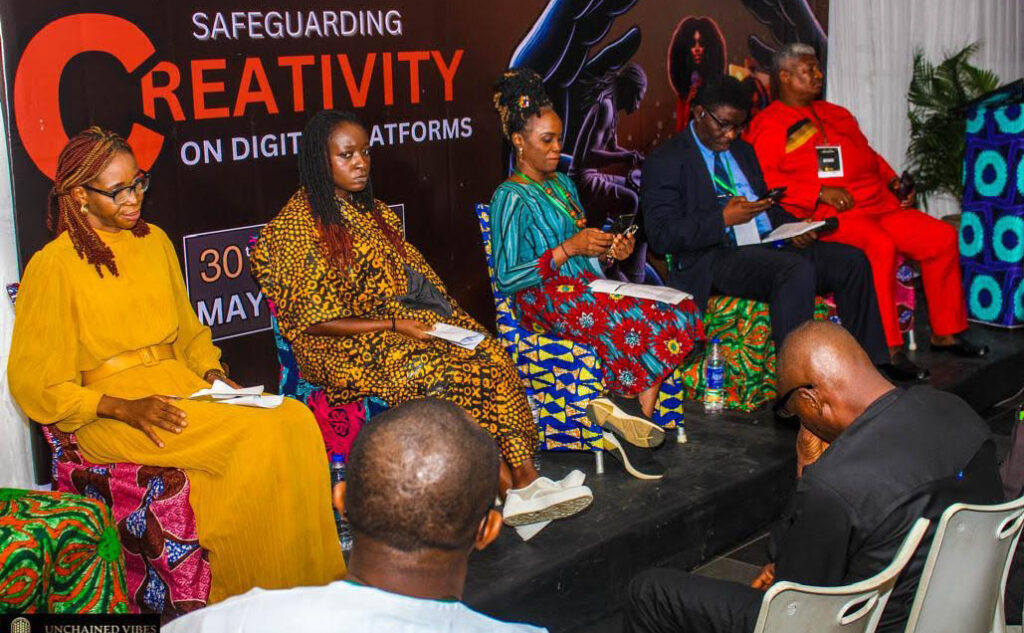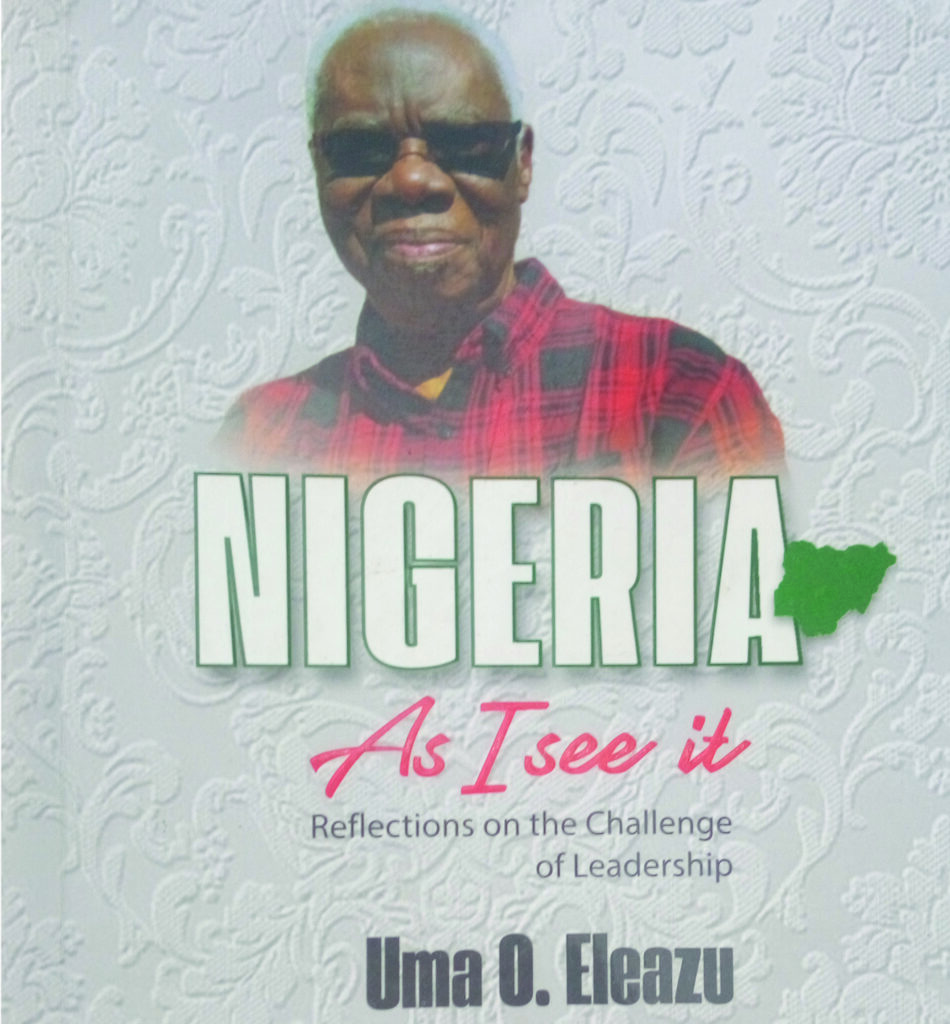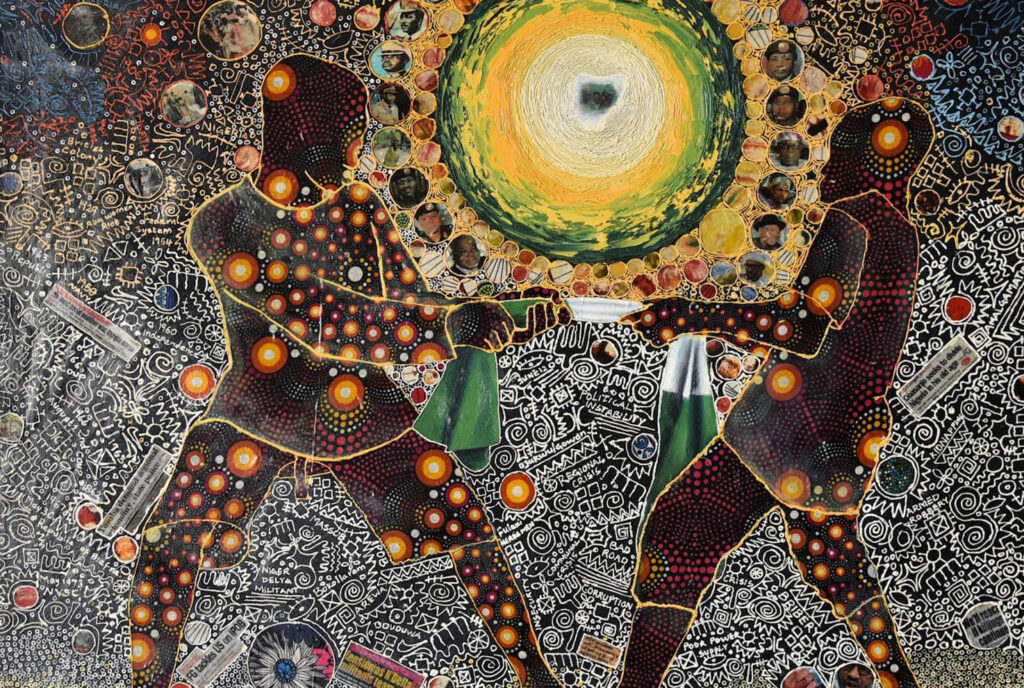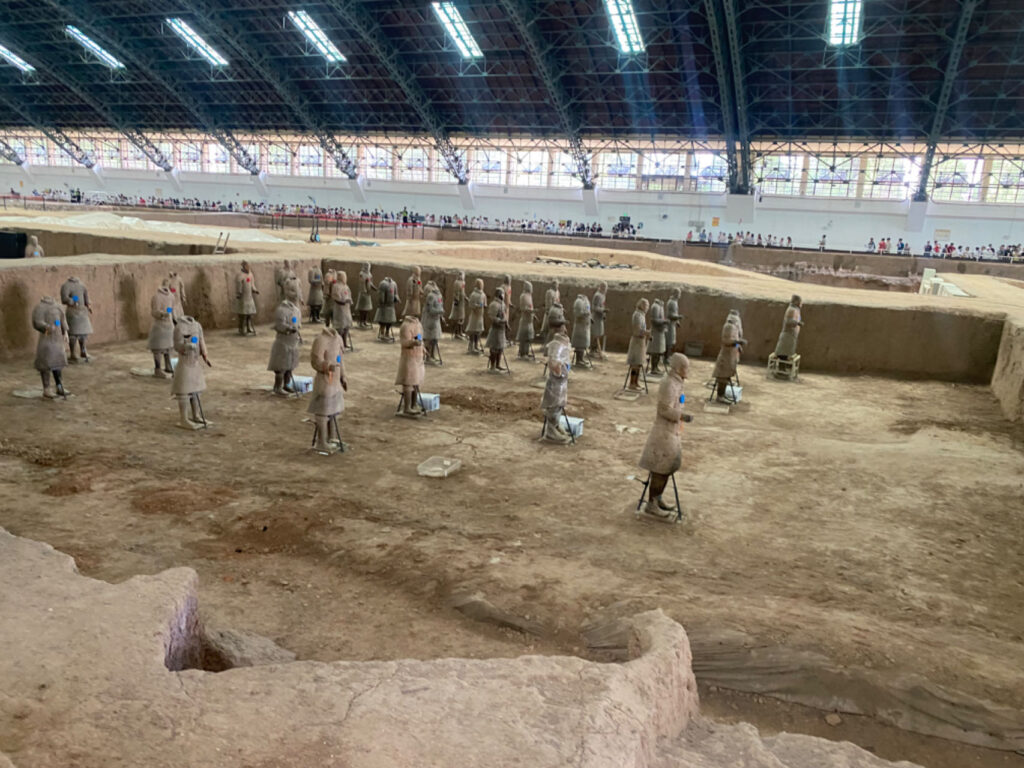 You probably have a slew of opinions on Godstime Assin, especially when you first read his Generation of Mad People and Urhobo Current Affairs. However, opinions alone are not enough. He is one person to love for his humility. An author and publisher, he is the Chief Executive Officer (CEO) of a publishing firm, Pen-Digital Nigeria Publishers.
You probably have a slew of opinions on Godstime Assin, especially when you first read his Generation of Mad People and Urhobo Current Affairs. However, opinions alone are not enough. He is one person to love for his humility. An author and publisher, he is the Chief Executive Officer (CEO) of a publishing firm, Pen-Digital Nigeria Publishers.
Well, an addition, if you like: An irredentist Urhobo researcher.
“Writing is a medium to share one’s ideas with people,” he says with aplomb.
He adds: “The purpose of writing, for me, is to sell what one knows that others need. Every individual has something that others need to blossom. For instance, the comedians are humorous for their audience to laugh, and in laughter, one adds to one’s age. That is their medium to sell their message to the public.”
For Assin, the medium he has deployed to sell his message remains, mostly literature. “Age notwithstanding, I have been in the literary industry for nearly two decades,” he surmises.
In these years, he has authored quite a number of books, ranging from prose, drama and poetry. “But I have been more of a novelist and playwright,” he confesses. “This not to say that I have limited myself to literature; I have done quite a number of things in the area of English and history. I love history because of my background. My father was a good historian who exposed us (his children) to oral folklore and history.”
His interest in history arose years after his father died. To him, there was need to build up a brand that wouldn’t be easily erased. In the same vein, he wanted to be known, respected and outstanding at home (Urhobo division) since he was born outside Delta State.
“I birthed Urhobo Current Affairs having carefully studied many of the history books in the market. A number of Urhobo historians were merely writing on origin and migration of the people, and I felt I could capitalise on the weakness of others to get a bestseller,” Assin reveals.
According to him, the so-called majority groups in Nigeria – Hausa, Yoruba and Igbo – have had a relatively better experience when compared to the minority ones, such as the Urhobo.
For the former group, the stories of the heroic feats of some of their exceptional leaders have had the privilege of at least a mention in the curricula and other academic materials.
“People are familiar for example with the heroics of Sir Ahmadu Bello, Sir Tafawa Balewa, Alhaji Aminu Kano, Uthman Dan Fodio etc of the Hausa Fulani. For the Yoruba, the heroics of Madams Moremi, Fagunwa, Tinubu, Olufunmilayo Ransome Kuti, of Chief Obafemi Awolowo, and countless others are well documented and publicised. The Igbo also have the heroic deeds of Dr. Nnmadi Azikiwe, Emeka Odumegwu Ojukwu, Aguiyi Ironsi, Chinua Achebe etc also well published,” he says.
Assin continues, “but when one seeks a document that chronicles the histories and heroics of the exceptional leaders that have emerged from the Urhobo nation, as an instance of one of the minority groups in Nigeria, and their contributions to the Nigerian State, one is highly disappointed that there are no such materials in print. It is scarcely remembered for instance that Gen. David Ejoor played a crucial role in frustrating the ambitions of the breakaway Biafran troops during the Civil War and ensuring that victory was assured on the side of the Nigerians.”
To achieve his aim, he wrote the Urhobo Current Affairs, which he first started in the newspapers around 2013 before moving it to social media (Facebook and Instagram) two years after.
It is in light of the foregoing that Godstime Assin’s groundbreaking work, Urhobo Current Affairs Vol. 1 is rightly described as not only historic but timely and well attuned with the ideological consciousness of a postmodern age in which difference, variety, identity and authenticity are appreciated and celebrated.
The book can also be described as a “Collection of Firsts” considering that it is an encyclopedia of all major trail blazers and pathfinders in different fields of endeavor from the Urhobo nation. For instance, the first Urhobo university graduate, first Urhoho professor, first Urhobo army General, etc. are all captured in the masterpiece.
A major feature of Godstime Assin’s classic is the chronicling of the 24 kingdoms into which the Urhobo nation is culturally divided and the over 500 communities contained in these kngdoms.
The book has 202 pages with a set of adorable, brightly coloured pictures of present important figures of the Urhobo nation adorning the opening pages. These include, the President General of the UPU Olorogun Ese Gam, the immediate past Deputy Senate President, Senator Ovie Omo Agege, and the Orodje of Okpe Kingdom.
Each hero discussed also has a portrait of him or her at the top left hand corner of the page to add visual effects; improve the aesthetical feel and sustain the interest and attention of the reader.
“Urhobo Current Affairs was peculiar being the first on an ethnic nationality in Nigeria. It covers core areas, such as; who the first Urhobo university trained graduate is, first female university-trained graduate, first male and female PhD holders, first male and female lawyers, first male and female doctors, first male and female engineers, first male and female professor, Urhobo first nurse and midwife, first engineer, painter and sculptor, accountant, first storey building in Urhoboland, Urhobos who have been senators, Urhobo military and civilian governors, deputy governors of Urhobo extraction, Federal ministers of Urhobo extraction, first primary and secondary schools in Urhoboland, Urhobo 24 kings and their designations, first generation of Urhobo professors, Vice Chancellors of Urhobo extraction, etc. The outstanding thing about it is that the date of every documented history is captured. Its first published edition was in 2019,” he says.
What were the challenges he encountered trying to write the book?
He draws a deep breath and adds in a manner that seems rather conspiratorial, “every prosperous adventure comes with not just a task but huge task.”
He continues, “I was faced with huge task achieving it owing to two things: First, there were no materials to consult. Second, I have no name to attract investors. In the course of its take off, I noticed that people were not interested in investing in it simply because they have not heard my name before.”
Assin says many of the people he approached to support the project asked him of its relevance to them and family. Some didn’t even listen to me at all. His words: “At the takeoff, I was faced with financial disappointment. Nobody was willing to help. Courageously, I was not disappointed. I kept hope alive, hustled harder and invested my hard earned money in research and hotel bills each time I travelled to Delta State. I am resident in Benin and I was visiting Delta Central (Urhobo Division) two to three times a week. I was always on the road for one piece of information or the other. With time, I attracted the likes of Professor Onigu Otite (now late), Professor Peter P. Ekeh (also late), Professor G. G. Darah and a few others. These great scholars responded to much of my questions.”
Their responses were more like a compass as these people were ‘Bibles of Urhobo history’ whose wealth of experience he needed to travel through his new calling.
Professor Darah was at different times Chairman of editorial board at the Daily Times and The Guardian. “He was always there to guide me. In summary, his work on The Guardian published in 2003 inspired Urhobo Current Affairs. Beyond financial impediment, our people usually hide their history. Many of the people in our communities are scared to tell their histories to strangers. They also demand huge money from a researcher, where they agree to provide you with the information you have come to solicit. I suffered both financial impediments and human-to-human rejection at its take off, but I am happy that had since been a bygone story. Later, Sir David Edafe Ikutegbe, has singlehandedly funded it. He’s the greatest donor to it. The likes of Dr Otive Igbuzor, Professor Sam Oyovbaire, Kelly Oghenekevwe, Okakuro Chapel, Olorogun Francis Arhiyor and a few others donated hugely at its eventually launch in December 2022.”
What has the book achieved for him?
“Great things or discovery comes with applauds besides financial rewards. The book, in all fairness, has not given me 10 per cent of what I had invested in it. The timing, energy, strength, intellectualism and sacrifice cannot be measured with money. Beyond money, it has given me fame and recognition. I have been honoured by the Urhobo Progress Union (UPU). The UPU awards are strictly conferred on notable Urhobo people who have contributed tremendously to the development of the ethnic group. I am the youngest to have received this honour in 91 years, and this wouldn’t have been possible if I hadn’t discovered this book. A segment of Urhobo Current Affairs was published in the 2022 UPU brochure convention. It was indeed a dream come true. I was honoured in far Ekiti State as the Onigere-Ara (Stylish Storyteller) of Tapa Kingdom. This was after the Oba attended my book launch and he was impressed with all that he witnessed at the venue.”
“Financial rewards?” he asks rather rhetorically.
He says, “at my ethnic level, people refer to me as a Urhobo historian. Not very many of them know that I had written over 10 books before I conceived the book. I have authored quite a lot of books that have attracted the approval of ministries of education in Edo, Delta, Bayelsa, Rivers and Lagos states. Some of my books include: Generation of Mad People, Oduduwa, A Dance to the Golden Vision, Beautiful Nonsense, Holy Sinner, Lust for Wealth, The Crying Hospital Bed, When Warri was Warri, Midnight Sun and A Miracle in Two Paragraphs.”
In one of his published works, Generation of Mad People, he highlights the problem of internet fraud among youths.
The text has received the endorsement of Ministries of Education in Edo and Rivers states. In these states, the book was approved for JSS 3 to enable it attract wide readership, and then be used for the State Junior WAEC.
To him, “inspiration is core in the actualisation of a dream or pursuit. Professor G. G. Darah’s work, Historical Facts About Urhobo Nationality in The Guardian Newspaper inspired and hastened me to actualise my dream. I am grateful to him.”



